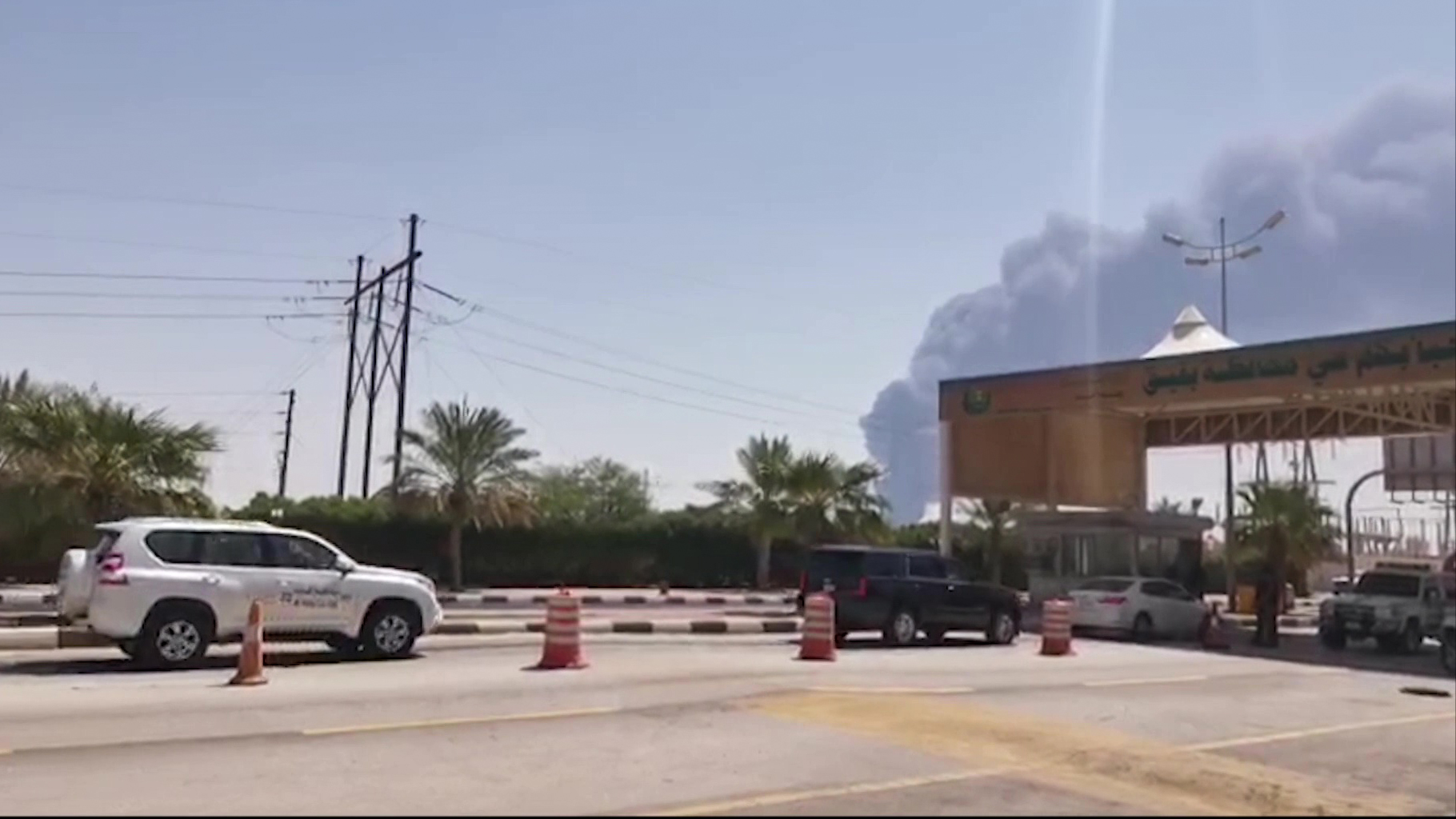Bush speaks, we read between the lines
TEXT OF INTERVIEW
Kai Ryssdal: I don’t know the last time the President pumped his own gas, but he’s probably got staffers who filled him in on how much it’s costing because he wasted no time this morning telling Americans he feels our pain.
Gas is up $1.40 a gallon over the past year, he said, and he knows why:
President Bush: One of the main reasons for high gas prices is that global oil production is not keeping up with growing demand.
Our senior business correspondent Bob Moon’s been spending some time today going over the president’s remarks.
Hi Bob.
Bob Moon: Hello Kai.
Ryssdal: Alright, so let’s get to the fundamentals, as the economists like to say: supply and demand. Is that really what’s going on here?
Moon: Well, we got a leading industry analyst on the phone, Kai: Barbara Shook at the Houston research firm Energy Intelligence and she begs to differ with the president:
Barbara Shook: The U.S. market is well supplied. Do you see anybody waiting in line at the filling station?
Moon: In fact, analysts have been reporting that gasoline reserves in this country have been on the rise since October and in recent months, we’ve got more stored up than we have since the early 1990’s, so as Shook points out, we’ve got enough on the supply side. Then you’ve got demand and that’s actually been falling since last July. None other than the Bush administration’s own Energy Department now says the demand for gasoline here is on track to see the first annual drop in consumption in 17 years. And I might point out that analysts aren’t the only ones who are questioning this supply and demand explanation. Let me give you a quote from the head of Exxon Mobil recently: “In terms of fundamentals, fear of supply reliability is overblown.”
Ryssdal: Hmm. The president mentioned Alaska — ANWR: The Alaskan National Wildlife Refuge — a couple of times today. He said he hopes Congress will start worrying as much about gas prices when they think about ANWR as they do about environmentalism.
Moon: Well, Barbara Shook says more supply certainly couldn’t hurt here, but this comes down to a very long and complicated political fight that’s not directly connected to the price turn-up we’re seeing today, so even if we do open up that exploration, it’s not going to bring prices down right now.
Ryssdal: Let me ask you about refineries, Bob. The president also talked about those a couple of times today. Here’s what he said:
President Bush: Another reason for the high gas prices is the lack of refining capacity. It’s been more than 30 years since America built its last new refinery.
Ryssdal: Mr. Moon, over to you. Is that the problem?
Moon: Well, Barbara Shook was a little confused by that one. She says we’re already doing that:
Barbara Shook: We’re expanding refining capacity in this country. We have probably more than half a million barrels of new refining capacity per day under construction right now and I wouldn’t be surprised to see another 100,000 barrels per day of new capacity announced in the next six months to a year.
Moon: And Kai, remember what I just said about demand going down. We’re actually using less gasoline lately. Well that means refineries here in the U.S. have actually been cutting back on production because their margins are tightening up.
Ryssdal: Alright, so to review, if it’s not supply and demand, it’s not refineries, it’s not gas on the market, what is it?
Moon: Well, most analysts say it’s a combination of a couple of things. They say as long as the value of the dollar keeps sinking — and oil does get priced in dollars you know — the price of oil has to go up then, so that the sellers can make up the difference in their purchasing power. That doesn’t entirely explain this, though. Last year, for example, the dollar dropped a little over 10 percent, but at the same time, oil prices were up around 50 percent, so the major factor here seems to be the wave of investment dollars that are flowing into the oil market, the speculators driving prices higher. Here’s a number for you: about $9 billion was invested in oil futures back in 2000. Well, that’s now up to $250 billion and even the head of Exxon Mobil blames wild speculation for all this.
Ryssdal: Marketplace’s Bob Moon and the president this morning. Thank you, Bob.
Moon: Thanks, Kai.
There’s a lot happening in the world. Through it all, Marketplace is here for you.
You rely on Marketplace to break down the world’s events and tell you how it affects you in a fact-based, approachable way. We rely on your financial support to keep making that possible.
Your donation today powers the independent journalism that you rely on. For just $5/month, you can help sustain Marketplace so we can keep reporting on the things that matter to you.


















